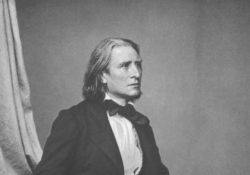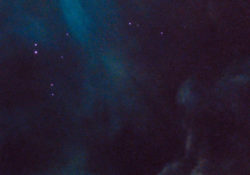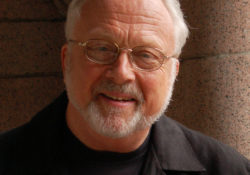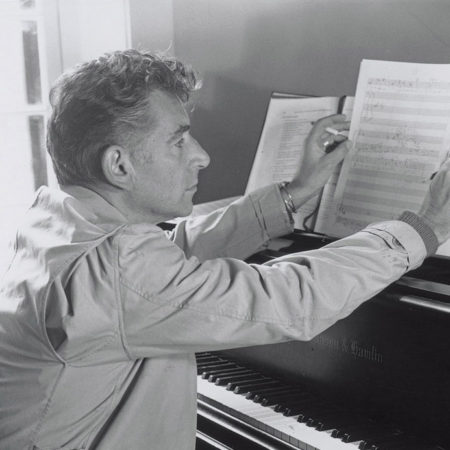In Zipper Hall at the Colburn School (Los Angeles)
A Project of SongFest, Presented by the Hampsong Foundation
June 20, 2012
Zipper Hall, The Colburn School
Los Angeles, California
In 2012, William Bolcom served as the Composer-in-Residence at SongFest, a unique summer program, based at the Colburn School in California, that focuses on the art of song. As part of Bolcom’s residency, SongFest presented the “Songs of William Bolcom” concert, which featured some of his most well-known song cycles and many of which set the poetry of American poet Jane Kenyon (1947-1995). The majority of the performances in this concert were given by the SongFest 2012 Marc & Eva Stern Fellows. The concert also included a new commission, “Gettysburg: July 1, 1863,” which also sets the poetry of Kenyon and was underwritten by the Sorel Organization. SongFest has generously made a selection of audio materials from this concert available through the website of the Hampsong Foundation.
Selected Audio from Songs of William Bolcom, June 20, 2012 at the Colburn School
1. William Bolcom gives an introduction to the concert
2.-10. Briefly It Enters (song cycle)
Music: William Bolcom | Text: Jane Kenyon
Rachel Schutz, soprano & 2012 SongFest Sorel Fellow | Tomasz Lis, piano
Watch YouTube videos of the entire cycle (in two parts) below or on YouTube here (Part I) and here (Part II).
2. Who
3. The Clearing
4. Otherwise
5. February: Thinking of Flowers
6. Twilight: After Haying
7. Man Eating
8. The Sick Wife
9. Peonies at Dusk
10. Briefly It Enters, and Briefly Speaks
11. Minicabs (song cycle)
Music: William Bolcom | Text: Arnold Weinstein
12. Sonetto 286 (from Laura Sonnets)
Music: William Bolcom | Text: Petrarch
Lorant Najbauer, baritone | Kwok-Wai Lui, piano
13. The Bustle in a House (from I Will Breathe a Mountain)
Music: William Bolcom | Text: Emily Dickinson
Laura Choi Stuart, soprano & 2012 Marc and Eva Stern Fellow | Javier Arrebola, piano
14. How to Swing Those Obligatos Around (from I Will Breathe a Mountain)
Music: William Bolcom | Text: Alice Fulton
Kate Tombaugh, mezzo-soprano | Bobby Pace, piano
15. Gettysburg: July 1, 1863, WORLD PREMIERE
Music: William Bolcom | Text: Jane Kenyon
Nathan Wyatt, baritone & 2012 SongFest Marc and Eva Stern Fellow | Lucas Wong, piano
“Gettysburg: July 1, 1863” was commissioned by SongFest & underwritten by the Sorel Organization
16.-19. Let Evening Come (song cycle)
Music: William Bolcom | Text: Maya Angelou, Emily Dickinson & Jane Kenyon
Laura Strickling, soprano & 2012 Marc and Eva Stern Fellow | Laura Pearson, viola | Liza Stepanova, piano
Watch YouTube video of the entire cycle below or here.
16. Ailey, Baldwin, Floyd, Killens, and Mayfield
17. ‘Tis Not That Dying Hurts Us So
18. viola/piano duo
19. Let Evening Come
20. Toothbrush Time (from Cabaret Songs)
Music: William Bolcom | Text: Arnold Weinstein
Aumna Iqbal, mezzo-soprano | Stanton Nelson, piano
21. Waitin (from Cabaret Songs)
Music: William Bolcom | Text: Arnold Weinstein
Jonathan Cooper, baritone | Stanton Nelson, piano
22. Amor (from Cabaret Songs)
Music: William Bolcom | Text: Arnold Weinstein
Mary-Elizabeth O’Neill, mezzo-soprano | Evan Roider, piano
23. Over the Piano (from Cabaret Songs)
Music: William Bolcom | Text: Arnold Weinstein
Loralee Songer, mezzo-soprano | Hyanghyun Lee, piano
24. He Tipped the Waiter (from Cabaret Songs)
Music: William Bolcom | Text: Arnold Weinstein
Mario Diaz-Moresco, baritone | Lucas Wong, piano
25. George (from Cabaret Songs)
Music: William Bolcom | Text: Arnold Weinstein
Siobahn Sung, mezzo-soprano | Hyueeun Ham, piano
File Download
PDF of Los Angeles (California) program
Zipper Hall, The Colburn School | June 20, 2012 (pdf / 934.84 KB)1. William Bolcom gives an introduction to the concert.
Briefly It Enters
View the video of the entire song cycle here, in two parts:
Who
The Clearing
Otherwise
February: Thinking of Flowers
Twilight: After Haying
Man Eating
The Sick Wife
Peonies at Dusk
Briefly It Enters, and Briefly Speaks
Briefly It Enters - Part 1/2 by William Bolcom
Briefly It Enters - Part 2/2 by William Bolcom
Who
2. Who (from Briefly It Enters)
Rachel Schutz, soprano & 2012 SongFest Sorel Fellow | Tomasz Lis, piano
Who
by Jane Kenyon
These lines are written
by an animal, an angel,
a stranger sitting in my chair;
by someone who already knows
how to live without trouble
among books, and pots and pans…
Who is it who asks me to find
language for the sound
a sheep’s hoof makes when it strikes
a stone? And who speaks
the words which are my food?
The Clearing
3. The Clearing (from Briefly It Enters)
Rachel Schutz, soprano & 2012 SongFest Sorel Fellow | Tomasz Lis, piano
The Clearing
by Jane Kenyon
The dog and I push through the ring
of dripping junipers
to enter the open space high on the hill
where I let him off the leash.
He vaults, snuffling, between tufts of moss;
twigs snap beneath his weight; he rolls
and rubs his jowls on the aromatic earth;
his pink tongue lolls.
I look for sticks of proper heft
to throw for him, while he sits, prim
and earnest in his love, if it is love.
All night a soaking rain, and now the hill
exhales relief, and the fragrance
of warm earth. . . . The sedges
have grown an inch since yesterday,
and ferns unfurled, and even if they try
the lilacs by the barn can’t
keep from opening today.
I longed for spring’s thousand tender greens,
and the white-throated sparrow’s call
that borders on rudeness. Do you know—
since you went away
all I can do
is wait for you to come back to me.
Otherwise
4. Otherwise (from Briefly It Enters)
Rachel Schutz, soprano & 2012 SongFest Sorel Fellow | Tomasz Lis, piano
Otherwise
by Jane Kenyon
I got out of bed
on two strong legs.
It might have been
otherwise. I ate
cereal, sweet
milk, ripe, flawless
peach. It might
have been otherwise.
I took the dog uphill
to the birch wood.
All morning I did
the work I love.
At noon I lay down
with my mate. It might
have been otherwise.
We ate dinner together
at a table with silver
candlesticks. It might
have been otherwise.
I slept in a bed
in a room with paintings
on the walls, and
planned another day
just like this day.
But one day, I know,
it will be otherwise.
February: Thinking of Flowers
5. February: Thinking of Flowers (from Briefly It Enters)
Rachel Schutz, soprano & 2012 SongFest Sorel Fellow | Tomasz Lis, piano
February: Thinking of Flowers
by Jane Kenyon
Now wind torments the field,
turning the white surface back
on itself, back and back on itself,
like an animal licking a wound.
Nothing but white–the air, the light;
only one brown milkweed pod
bobbing in the gully, smallest
brown boat on the immense tide.
A single green sprouting thing
would restore me. . . .
Then think of the tall delphinium,
swaying, or the bee when it comes
to the tongue of the burgundy lily.
Twilight: After Haying
6. Twilight: After Haying (from Briefly It Enters)
Rachel Schutz, soprano & 2012 SongFest Sorel Fellow | Tomasz Lis, piano
Twilight: After Haying
by Jane Kenyon
Yes, long shadows go out
from the bales; and yes, the soul
must part from the body:
what else could it do?
The men sprawl near the baler,
too tired to leave the field.
They talk and smoke,
and the tips of their cigarettes
blaze like small roses
in the night air. (It arrived
and settled among them
before they were aware.)
The moon comes
to count the bales,
and the dispossessed–
Whip-poor-will, Whip-poor-will
–sings from the dusty stubble.
These things happen. . .the soul’s bliss
and suffering are bound together
like the grasses. . .
The last, sweet exhalations
of timothy and vetch
go out with the song of the bird;
the ravaged field
grows wet with dew.
Man Eating
7. Man Eating (from Briefly It Enters)
Rachel Schutz, soprano & 2012 SongFest Sorel Fellow | Tomasz Lis, piano
Man Eating
by Jane Kenyon
The man at the table across from mine
is eating yogurt. His eyes, following
the progress of the spoon, cross briefly
each time it nears his face. Time,
and the world with all its principalities,
might come to an end as prophesied
by the Apostle John, but what about
this man, so completely present
to the little carton with its cool,
sweet food, which has caused no animal
to suffer, and which he is eating
with a pearl-white plastic spoon.
The Sick Wife
8. The Sick Wife (from Briefly It Enters)
Rachel Schutz, soprano & 2012 SongFest Sorel Fellow | Tomasz Lis, piano
The Sick Wife
by Jane Kenyon
The sick wife stayed in the car
while he bought a few groceries.
Not yet fifty,
she had learned what it’s like
not to be able to button a button.
It was the middle of the day—
and so only mothers with small children
or retired couples
stepped through the muddy parking lot.
Dry cleaning swung and gleamed on hangers
in the cars of the prosperous.
How easily they moved—
with such freedom,
even the old and relatively infirm.
The windows began to steam up.
The cars on either side of her
pulled away so briskly
that it made her sick at heart.
Peonies at Dusk
9. Peonies at Dusk (from Briefly It Enters)
Rachel Schutz, soprano & 2012 SongFest Sorel Fellow | Tomasz Lis, piano
Peonies at Dusk
by Jane Kenyon
White peonies blooming along the porch
send out light
while the rest of the yard grows dim.
Outrageous flowers as big as human
heads! They’re staggered
by their own luxuriance: I had
to prop them up with stakes and twine.
The moist air intensifies their scent,
and the moon moves around the barn
to find out what it’s coming from.
In the darkening June evening
I draw a blossom near, and bending close
search it as a woman searches
a loved one’s face.
Briefly It Enters, and Briefly Speaks
10. Briefly It Enters, and Briefly Speaks (from Briefly It Enters)
Rachel Schutz, soprano & 2012 SongFest Sorel Fellow | Tomasz Lis, piano
Briefly It Enters, and Briefly Speaks
by Jane Kenyon
I am the blossom pressed in a book,
found again after two hundred years. . . .
I am the maker, the lover, and the keeper. . . .
When the young girl who starves
sits down to a table
she will sit beside me. . . .
I am food on the prisoner’s plate. . . .
I am water rushing to the wellhead,
filling the pitcher until it spills. . . .
I am the patient gardener
of the dry and weedy garden. . . .
I am the stone step,
the latch, and the working hinge. . . .
I am the heart contracted by joy. . .
the longest hair, white
before the rest. . . .
I am there in the basket of fruit
presented to the widow. . . .
I am the musk rose opening
unattended, the fern on the boggy summit. . . .
I am the one whose love
overcomes you, already with you
when you think to call my name. . . .
Minicabs
11. Minicabs (song cycle of “Mini-Cabaret Songs”)
Learn more about Minicabs on the Song of America database.
Soprano: Martina Caruso, MacKenzie Florence, Lynn Isnar, Julia Mendelsohn, Irina Popescu, Hannah Tarder-Stoll, and Jessica Wright
Mezzo-soprano: Marisa Novak
Baritone: Matthew Giallongo and Paul Spanagel
Bass: Zachary Benton Burgess
Piano: Lucas Wong
Minicabs
Sonetto 286
12. Sonetto 286 (from Laura Sonnets)
Lorant Najbauer, baritone | Kwok-Wai Lui, piano
Learn more about the world premiere performance of the Laura Sonnets, given by Thomas Hampson and Craig Rutenberg as part of the Liszt Festival at the University of Georgia in 2011, here.
Text: Petrarch (1304-1374)
ch’i’ odo di colei che qui fu mia
donna (or è in Cielo et ancor par qui sia
et viva et senta et vada et ami et spiri)ritrar potessi, or che caldi desiri
movrei parlando, sì gelosa et pia
torna ov’ io son, temendo non fra via
mi stanchi o ‘ndietro a do man manca giri.
Ir dritto alto m’insegna, et io, che ‘ntendo
le sue caste lusinghe e i giusti preghi
col dolce mormorar pietoso et basso,
secondo lei conven mi regga et pieghi,
per la dolcezza che del suo dir prendo,
ch’ avria vertù di far piangere un sasso.
that I hear from her who here was my lady
(now she is in Heaven but seems to be here
and to live and feel and walk and love and breathe),oh what hot desire would I move by speaking!
So assiduous and kind she returns where I am,
fearing lest I become weary along
the way or turn back or to the left.
She teaches me to go straight up, and I, who understand
her chaste allurements and her just prayers
with their sweet, low, pitying murmur,
I must rule and bend myself according to her
because of the sweetness I take from her word,
which would have the power to make a stone weep.
The Bustle in a House
13. The Bustle in a House (from I Will Breathe a Mountain)
Laura Choi Stuart, soprano & 2012 Marc and Eva Stern Fellow | Javier Arrebola, piano
The Bustle in a House
by Emily Dickinson
The bustle in a house
The morning after death
Is solemnest of industries
Enacted upon earth, –
The sweeping up the heart,
And putting love away
We shall not want to use again
Until eternity.
How to Swing Those Obligatos Around
14. How to Swing Those Obligatos Around (from I Will Breathe a Mountain)
Kate Tombaugh, mezzo-soprano | Bobby Pace, piano
How To Swing Those Obbligatos Around
by Alice Fulton
He had shag hair & a boutique.
In the bar he told me I had too much class
to be a telephone operator & I told him
he should have been thirty in 1940:
a gangster with patent leather shoes
to shine under girl’s skirts & a mother
who called him sonny. He should have
crashed a club where they catered
to the smart set, disposing of
the bouncer with You spent three months
in a plaster cast the last time
you tangled with me & I should have been
the singer in tight champagne
skin waiting for him to growl
I don’t know how to begin
this beguine but you certainly know how to
swing those obbligatos around & we
would fox-trot till a guy
he knew from Sing Sing cut in.
& he said he loved old flicks
I should come up to his place & see
the art deco ashtrays on his shag rug
that I shouldn’t waste myself
at Bell tel but marry him
& take his business calls &
I said How many years do you get
if they give you life
Gettysburg: July 1, 1863
15. Gettysburg: July 1, 1863
WORLD PREMIERE
Nathan Wyatt, baritone & 2012 SongFest Marc and Eva Stern Fellow | Lucas Wong, piano
Read more about the commission on the Song of America database.
Gettysburg: July 1, 1863
by Jane Kenyon
The young man, hardly more
than a boy, who fired the shot
had looked at him with an air
not of anger but of concentration,
as if he were surveying a road,
or feeding a length of wood into a saw:
It had to be done just so.
The bullet passed through
his upper chest, below the collarbone.
The pain was not what he might
have feared. Strangely exhilarated
he staggered out of the pasture
and into a grove of trees.
He pressed and pressed
the wound, trying to stanch
the blood, but he could only press
what he could reach, and he could
not reach his back, where the bullet
had exited.
He lay on the earth
smelling the leaves and mosses,
musty and damp and cool
after the blaze of the open afternoon.
How good the earth smelled,
as it had when he was a boy
hiding from his father,
who was intent on strapping him
for doing his chores
late one time too many.
A cowbird razzed from a rail fence.
It isn’t mockery, he thought,
no malice in it … just a noise.
Stray bullets nicked the oaks
overhead. Leaves and splinters fell.
Someone near him groaned.
But it was his own voice he heard.
His fingers and feet tingled,
the roof of his mouth,
and the bridge of his nose….
He became dry, dry, and thought
of Christ, who said, I thirst.
His man-smell, the smell of his hair
and skin, his sweat, the salt smell
of his cock and the little ferny hairs
that two women had known
left him, and a sharp, almost sweet
smell began to rise from his open mouth
in the warm shade of the oaks.
A streak of sun climbed the rough
trunk of a tree, but he did not
see it with his open eye.
Let Evening Come
Let Evening Come
View the entire song cycle and individual songs listed with audio below.
Let Evening Come
Ailey, Baldwin, Floyd, Killens, and Mayfield
16. Ailey, Baldwin, Floyd, Killens, and Mayfield (from Let Evening Come)
Laura Strickling, soprano & 2012 Marc and Eva Stern Fellow | Laura Pearson, viola | Liza Stepanova, piano
Ailey, Baldwin, Floyd, Killens, and Mayfield
by Maya Angelou
When great trees fall,
rocks on distant hills shudder,
lions hunker down
in tall grasses,
and even elephants
lumber after safety.
When great trees fall
in forests,
small things recoil into silence,
their senses
eroded beyond fear.
When great souls die,
the air around us becomes
light, rare, sterile.
We breathe, briefly.
Our eyes, briefly,
see with
a hurtful clarity.
Our memory, suddenly sharpened,
examines,
gnaws on kind words
unsaid,
promised walks
never taken.
Great souls die and
our reality, bound to
them, takes leave of us.
Our souls,
dependent upon their
nurture,
now shrink, wizened.
Our minds, formed
and informed by their
radiance,
fall away.
We are not so much maddened
as reduced to the unutterable ignorance
of dark, cold
caves.
And when great souls die,
after a period peace blooms,
slowly and always
irregularly. Spaces fill
with a kind of
soothing electric vibration.
Our senses, restored, never
to be the same, whisper to us.
They existed. They existed.
We can be. Be and be
better. For they existed.
Tis Not That Dying Hurts Us So
17. ‘Tis Not That Dying Hurts Us So (from Let Evening Come)
Laura Strickling, soprano & 2012 Marc and Eva Stern Fellow | Laura Pearson, viola | Liza Stepanova, piano
‘Tis Not That Dying Hurts Us So
by Emily Dickinson
‘Tis not that Dying hurts us so —
‘Tis Living — hurts us more —
But Dying — is a different way —
A Kind behind the Door —
The Southern Custom — of the Bird —
That ere the Frosts are due —
Accepts a better Latitude —
We — are the Birds — that stay.
The Shrivers round Farmers’ doors —
For whose reluctant Crumb —
We stipulate — till pitying Snows
Persuade our Feathers Home.
Viola/piano duo
18. Viola/piano duo (from Let Evening Come)
Laura Pearson, viola | Liza Stepanova, piano
Let Evening Come
19. Let Evening Come (from Let Evening Come)
Laura Strickling, soprano & 2012 Marc and Eva Stern Fellow | Laura Pearson, viola | Liza Stepanova, piano
Let Evening Come
by Jane Kenyon
Let the light of late afternoon
shine through chinks in the barn, moving
up the bales as the sun moves down.
Let the cricket take up chafing
as a woman takes up her needles
and her yarn. Let evening come.
Let dew collect on the hoe abandoned
in long grass. Let the stars appear
and the moon disclose her silver horn.
Let the fox go back to its sandy den.
Let the wind die down. Let the shed
go black inside. Let evening come.
To the bottle in the ditch, to the scoop
in the oats, to air in the lung
let evening come.
Let it come, as it will, and don’t
be afraid. God does not leave us
comfortless, so let evening come.
Toothbrush Time
20. Toothbrush Time (from Cabaret Songs) | Text: Arnold Weinstein
Aumna Iqbal, mezzo-soprano | Stanton Nelson, piano
Toothbrush Time
Waitin
21. Waitin (from Cabaret Songs) | Text: Arnold Weinstein
Jonathan Cooper, baritone | Stanton Nelson, piano
Waitin
Amor
22. Amor (from Cabaret Songs) | Text: Arnold Weinstein
Mary-Elizabeth O’Neill, mezzo-soprano | Evan Roider, piano
Amor
Over the Piano
23. Over the Piano (from Cabaret Songs) | Text: Arnold Weinstein
Loralee Songer, mezzo-soprano | Hyanghyun Lee, piano
Over the Piano
He Tipped the Waiter
24. He Tipped the Waiter (from Cabaret Songs) | Text: Arnold Weinstein
Mario Diaz-Moresco, baritone | and Lucas Wong, piano
Back to Song Listing
George
25. George (from Cabaret Songs) | Text: Arnold Weinstein
Siobahn Sung, mezzo-soprano | Hyueeun Ham, piano
Back to Song Listing
For more information, please visit:
William Bolcom's Official Website
For more about the composer, his musical compositions, and more!
Visit siteCredits
A special thanks to Rosemary Hyler Ritter and Rosalinda Monroy.
Video credit for “Songs of William Bolcom”: Tessa Phillips
Photo credit for “Songs of William Bolcom”: Sophie Leung-Wolf
This is a collaborative page between SongFest and the Hampsong Foundation.
Content used with permission of the composer and performers.
The Hampsong Foundation websites are licensed through ASCAP and BMI.






